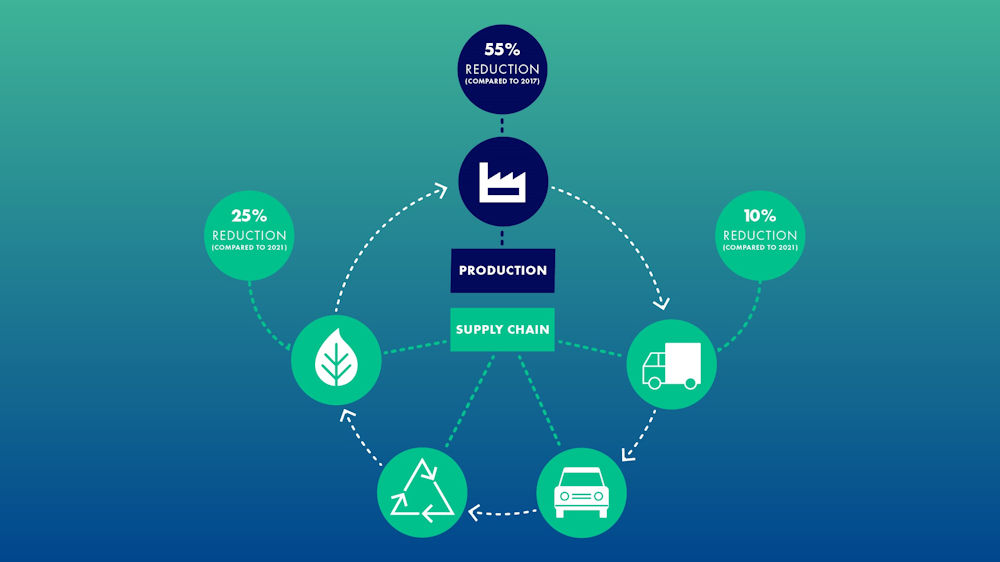According to Sumitomo, after meeting its carbon reduction targets ahead of schedule, Falken’s push towards carbon neutrality is accelerating – as it aims to more than half its carbon emissions, by 2030
In doing so, Sumitomo Rubber Industries Ltd (SRI), hopes to reduce carbon emissions throughout its supply chain, and across its own production facilities, by 2030.
Rapid progress to-date means previously set sustainability milestones have been hit ahead of schedule. In 2021, SRI set itself the goal of reducing emissions by 50 per cent (from 2017 levels) by 2030 – a target it has already exceeded thanks, in part, to the implementation of renewable energies and energy-saving measures. These include the introduction of electricity generation using renewable energy sources at tyre factories in China and Thailand.
The manufacturer is now increasing its target to a reduction of 55 per cent by 2030 (compared to 2017 levels) – underlining SRI’s corporate ambitions to become fully carbon neutral by 2050.
Driven by SRI’s long-term sustainability policy, ‘Driving Our Future Challenge 2050’ the latest initiatives will help accelerate its carbon neutral goals – aiming to reduce annual scope 1 and 2 CO2 emissions.
Currently, around 90 per cent of SRI’s greenhouse gases are caused by scope 3 CO2 emissions, from material development and procurement, logistics, sales, use and processing/recycling. As such, the brand is targeting a 25 per cent reduction in emissions associated with material development and procurement (by 2030, compared to 2021). Sustainable sourcing and strengthening supplier engagement is central to SRI’s strategy, something which is bolstered by the introduction of the environmental and social risk assessment tool, Rubberway.
SRI is looking to save a further 10 per cent (by 2030, compared to 2021) across logistics – primarily through a modal shift and optimisation in transportation – and by retreading or recycling tyres used during the distribution process.
What is more, the manufacturer is looking at reducing tyre rolling resistance, extending tyre life, reducing tyre weight, expanding retreading capacity and using more sustainable raw materials. These goals will be achieved by promoting the initiatives outlined in SRI’s ‘Driving Our Future Challenge 2050’ policy, as well as upholding the TOWANOWA circular economy concept for each individual process – with SRI’s approach designed to support an improved circular economy.


















